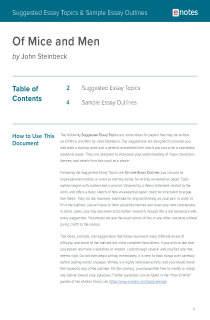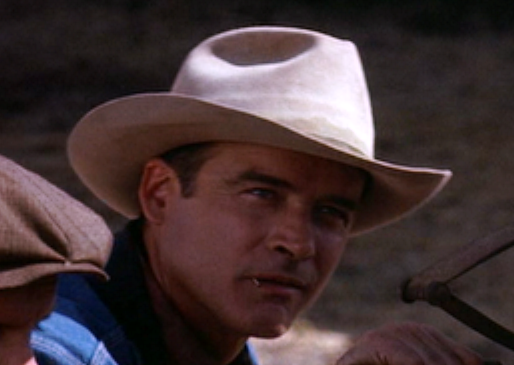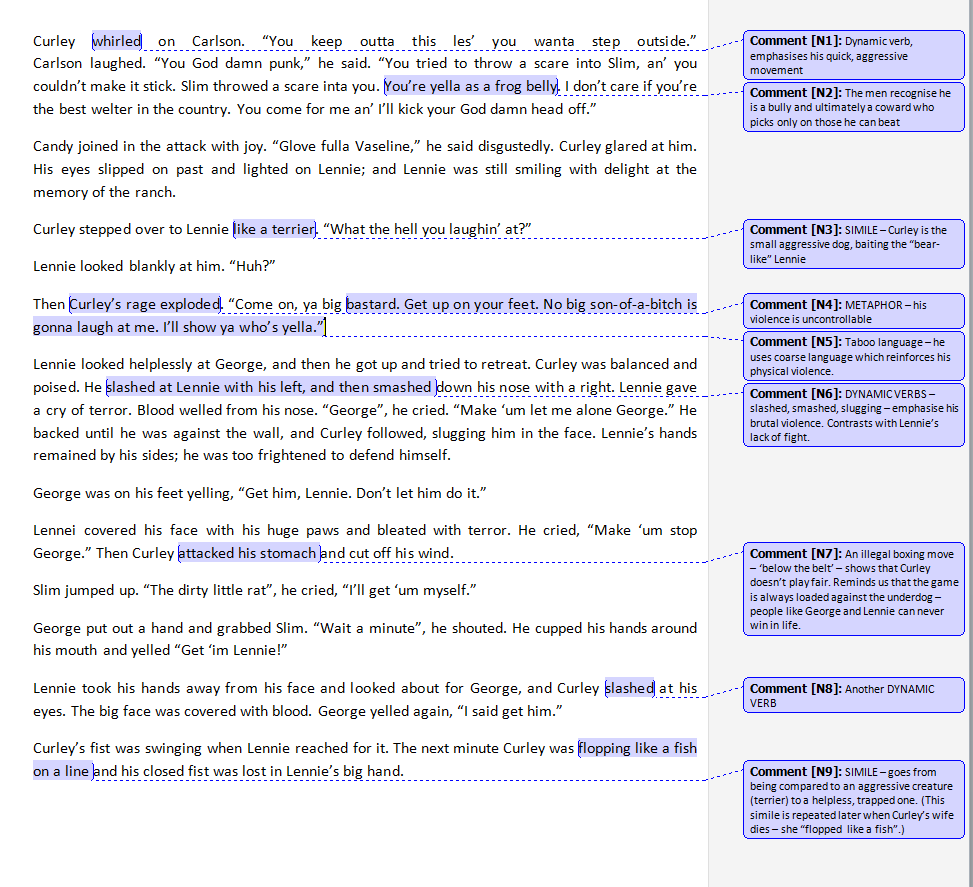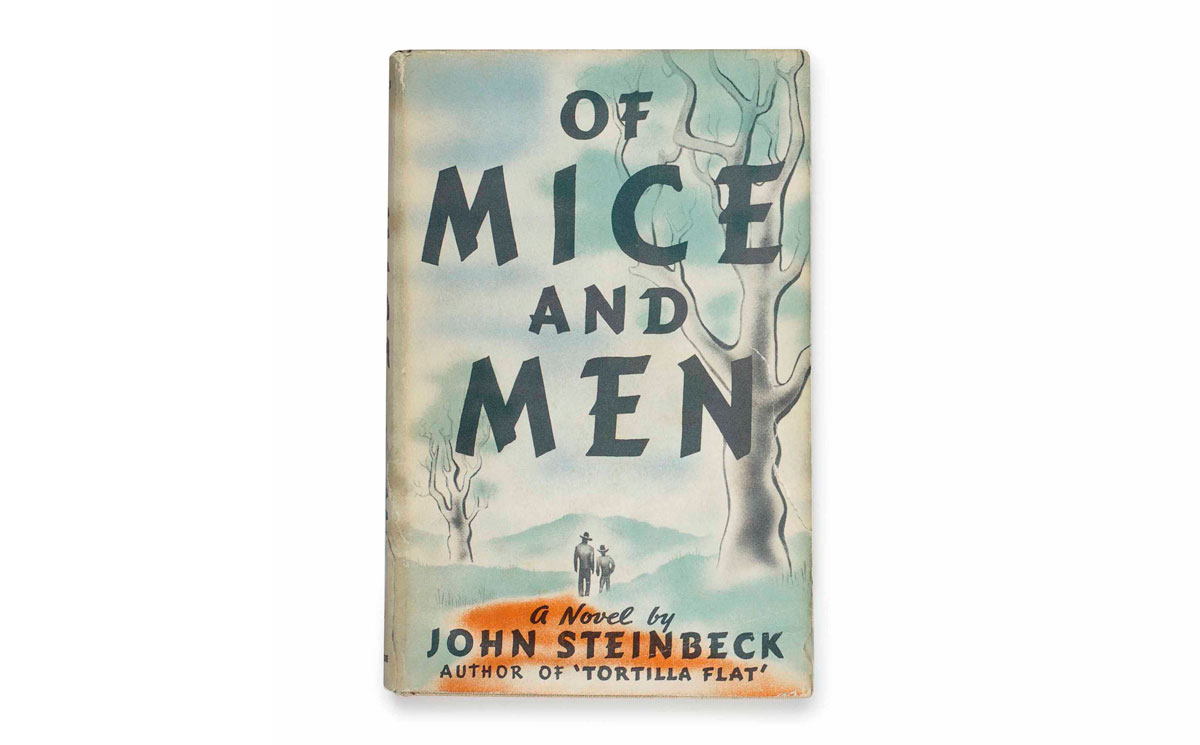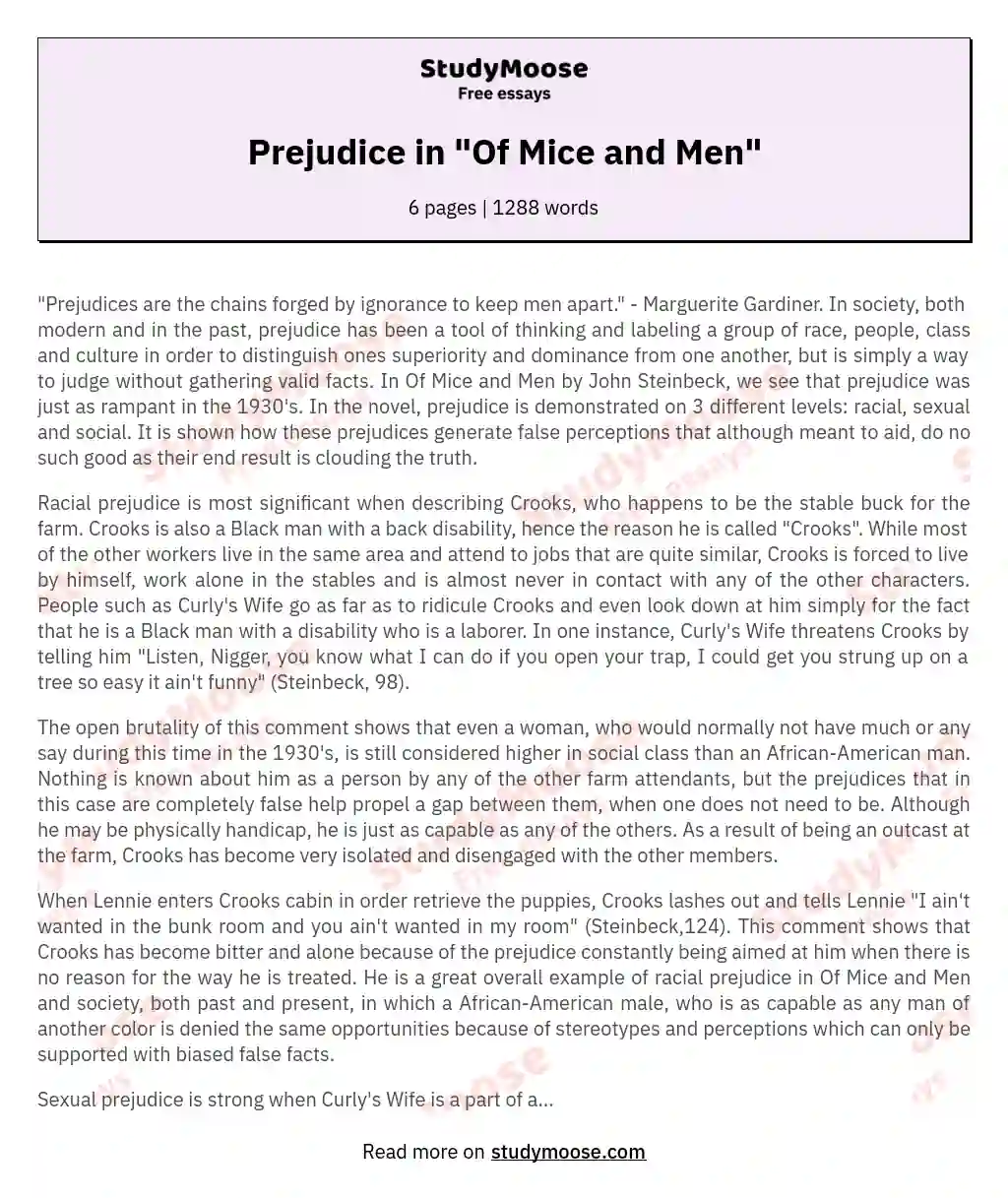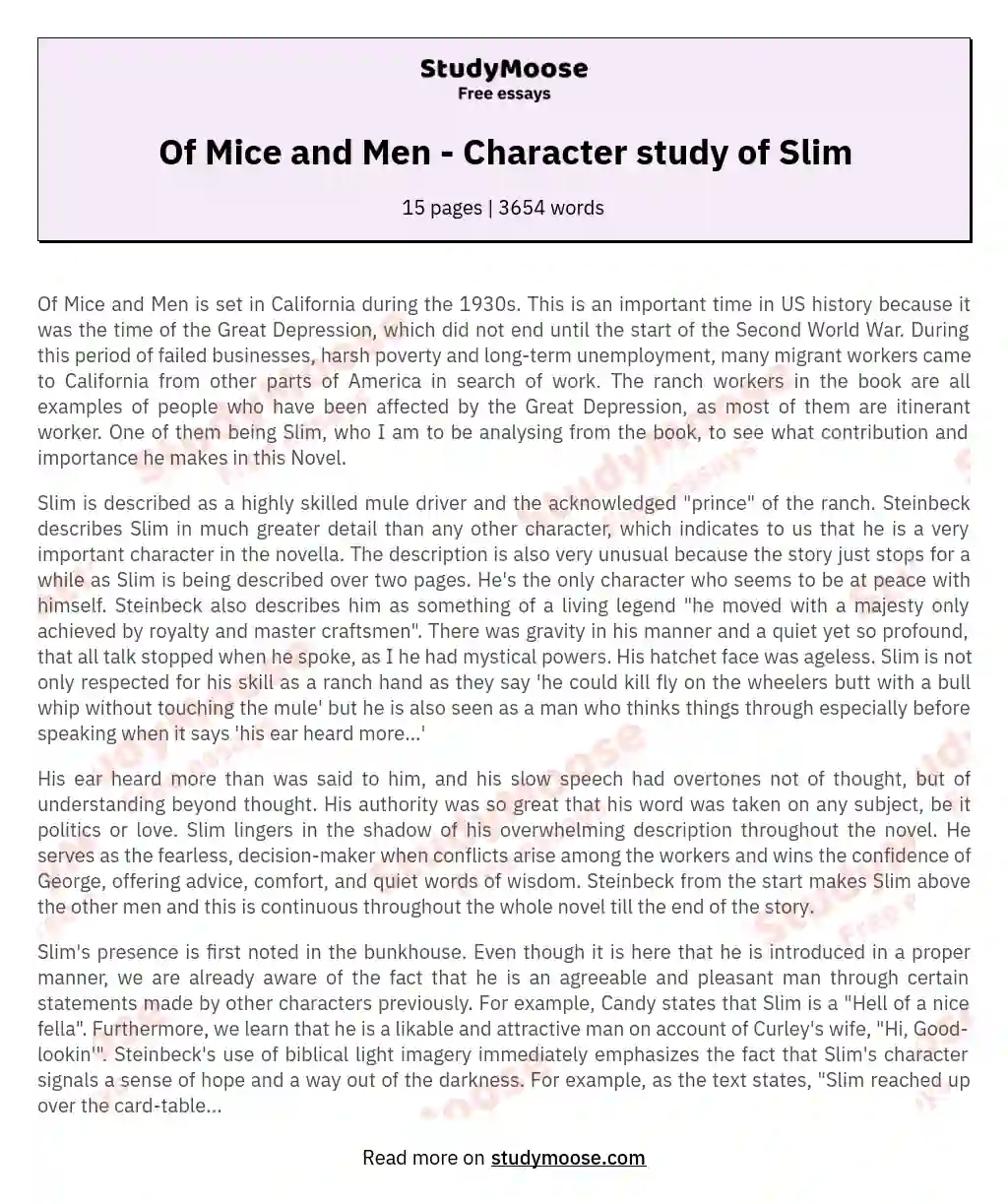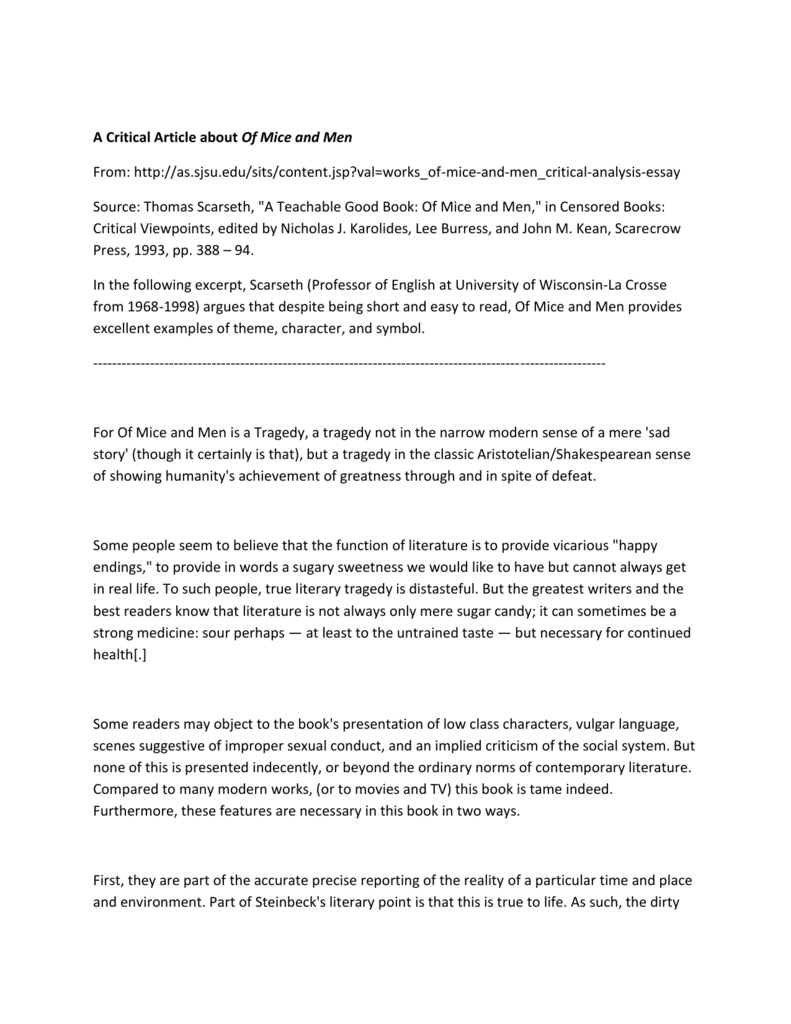Of Mice and Men is a novel written by John Steinbeck, published in 1937. The novel tells the story of two ranch workers, George Milton and Lennie Small, who travel together and dream of one day owning their own farm.
The novel is set during the Great Depression, a time of economic hardship and social upheaval in the United States. George and Lennie are itinerant workers, moving from one ranch to another in search of work. They are drawn to each other by their shared dream of owning their own land, but they are also bound together by Lennie's mental disability. Lennie is a large, strong man with the mind of a child, and George is his protector and caregiver.
One of the most prominent themes in Of Mice and Men is the idea of the American Dream, the belief that anyone can achieve success and happiness through hard work and determination. George and Lennie's dream of owning their own farm is an example of this, and their bond is strengthened by their shared goal. However, the novel also explores the harsh realities of life and the difficulties of achieving the American Dream, particularly for those who are disadvantaged or marginalized.
Another important theme in the novel is loneliness and isolation. The characters in Of Mice and Men are largely isolated from the rest of society, and their relationships with each other are often strained. Many of the characters, including Candy, Crooks, and Curley's wife, are lonely and isolated, and they are drawn to George and Lennie because of their companionship and shared dreams. However, even George and Lennie's relationship is fraught with tension, and they are ultimately unable to achieve their dream together.
The characters in Of Mice and Men are also defined by their social roles and status, and the novel explores the themes of power and powerlessness. The ranch workers are at the bottom of the social hierarchy, and they are subject to the whims and abuse of their bosses and the other ranch hands. The only characters who hold any power are the boss and Curley, the boss's son, and they use their power to bully and oppress the other workers.
Overall, Of Mice and Men is a powerful and poignant exploration of the human condition, with themes that are still relevant today. The novel is a testament to the enduring power of friendship and the importance of having a sense of purpose and belonging. It is a must-read for anyone interested in literature, and its themes of loneliness, isolation, and the pursuit of the American Dream make it a classic that will continue to resonate with readers for years to come.
John Barth's "The Funhouse" is a postmodern novel that plays with the conventions of the traditional narrative structure and challenges the reader's expectations. The novel is structured as a series of interconnected stories that revolve around the theme of the funhouse, a place where reality is distorted and the boundaries between illusion and reality are blurred.
The novel follows the lives of a group of characters who are all connected to the funhouse in some way. There is the protagonist, Billy, who works as a carnival barker and is obsessed with the funhouse; his ex-girlfriend, Amy, who is a painter and has a tumultuous relationship with Billy; and a variety of other characters who work at or visit the funhouse.
One of the main themes of "The Funhouse" is the idea of identity and how it can be shaped and altered by external influences. The funhouse, with its distorted mirrors and trick doors, serves as a metaphor for the ways in which society and culture can distort our sense of self. The characters in the novel struggle with finding their own identities and often feel trapped by the roles that society has assigned to them.
Another theme of the novel is the role of storytelling and how it shapes our understanding of the world. The novel is full of stories within stories, as the characters recount their own experiences and interpret the events of their lives. These stories often contradict each other and blur the line between truth and fiction, challenging the reader to question the reliability of the narrators and the veracity of their tales.
Overall, "The Funhouse" is a complex and thought-provoking novel that invites the reader to consider the nature of reality and the power of storytelling. It is a testament to Barth's skill as a writer and his ability to craft a narrative that is both intellectually stimulating and highly entertaining.
